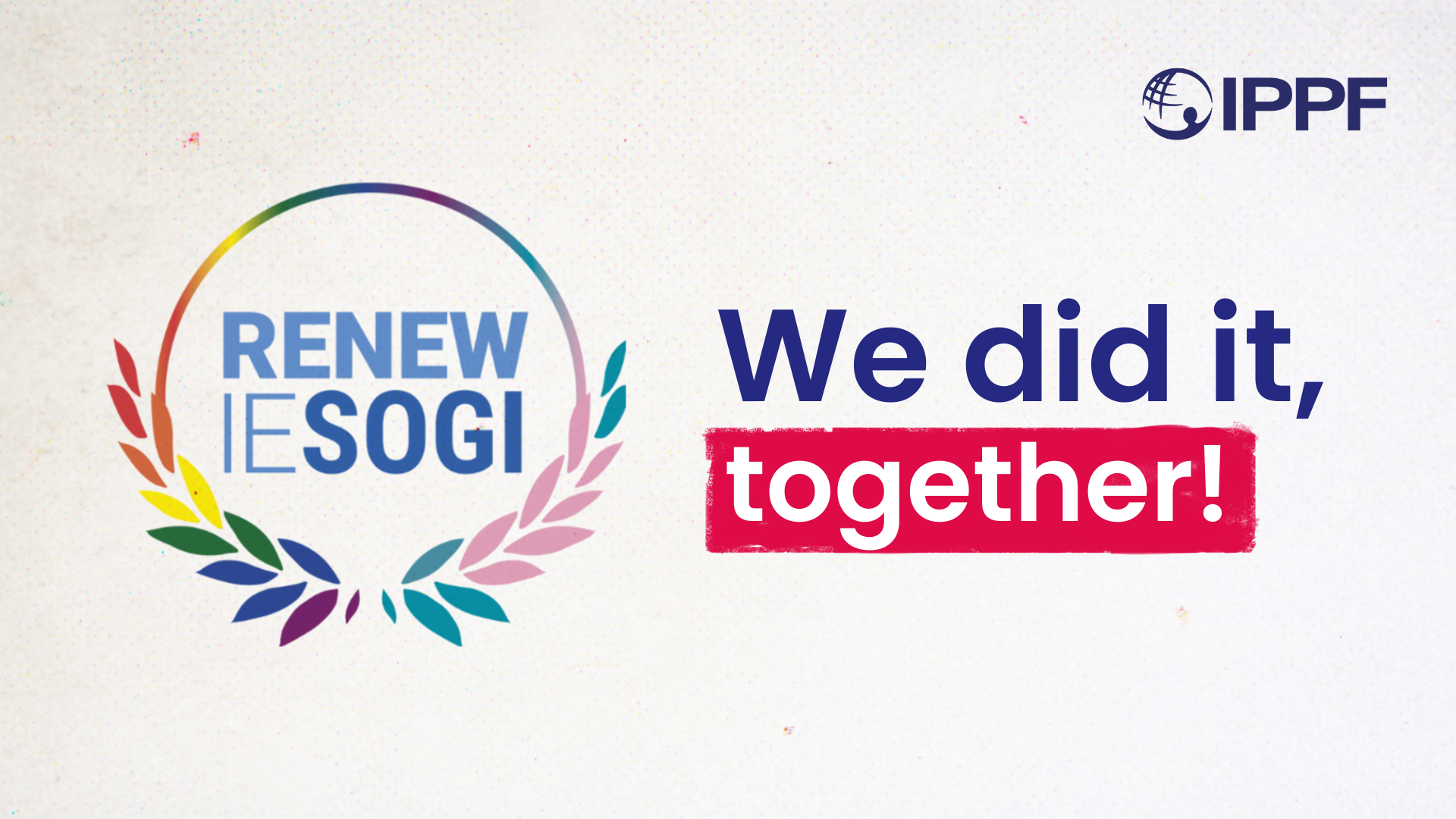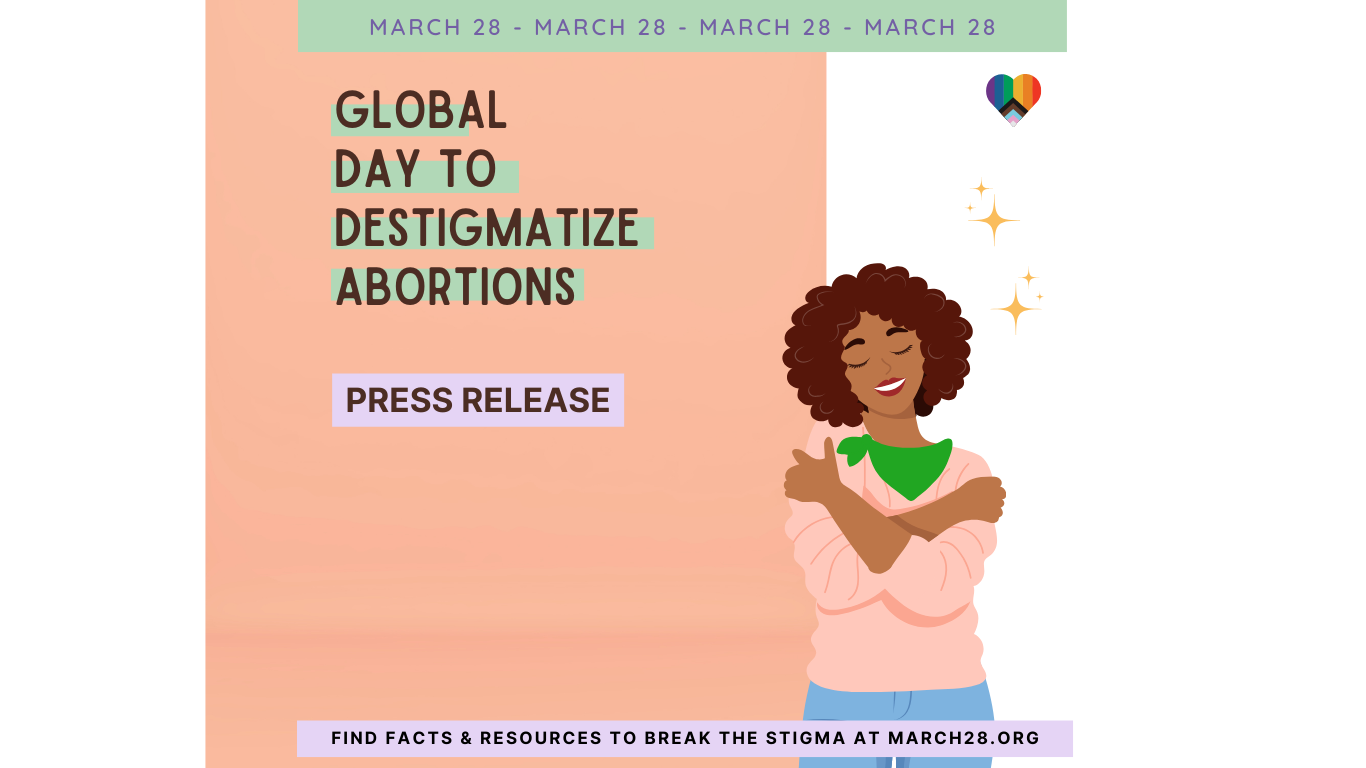Latest press releases
A selection of stories from across the Federation

US Government Expands Global Gag Rule in a Major Escalation of Regressive Foreign Policy
FOR IMMEDIATE RELEASE
For media enquiries
Telephone:
+44 7918 845944Email IPPF:
Email: media@ippf.org

| 07 July 2025
UN renews crucial human rights expert mandate on sexual orientation and gender identity
(Geneva, 7 July 2025) - The Human Rights Council has renewed the mandate of the only human rights expert within the United Nations system that is specifically dedicated to addressing violence and discrimination against lesbian, gay, bisexual, trans (LGBT) and gender diverse persons.Following a campaign by 1,259 non-governmental organisations from 157 States and territories, the UN human rights body adopted the resolution by a vote of 29 in favour, with 15 voting against and 3 abstaining. Thanks to this vote, the Human Rights Council reaffirmed its commitment to combating discrimination and violence against everyone, reminding all States of their obligations towards people of diverse sexual orientations and gender identities.The Independent Expert on protection against violence and discrimination on the basis of sexual orientation and gender identity (SOGI) will now be able to continue the work for three more years. The mandate is currently held by South African scholar Graeme Reid."IPPF warmly welcome the renewal of the UN Independent Expert on SOGI. This role is vital at a time when LGBTQI+ communities around the world are facing growing attacks on their rights and freedoms. As one of the world’s largest providers of sexual and reproductive health services to marginalized communities, we know that bodily autonomy and access to care cannot be taken for granted. We look forward to continuing the work alongside the Independent Expert to ensure that LGBTQI+ people everywhere can live with dignity, make informed choices about their bodies, and access the care they need without fear, violence or discrimination." - Micah Grzywnowicz, Regional Director of IPPF European NetworkCreated in 2016, and renewed in 2019 and 2022, the mandate of the Independent Expert on SOGI has been supported by a growing number of States from all regions. The current resolution to renew the mandate was presented by a Core Group of six Latin American countries – Brazil, Chile, Colombia, Costa Rica, Mexico, and Uruguay - and was co-sponsored by 50 countries from all regions. The Independent Expert is tasked with assessing the implementation of international human rights law, investigating violence and discrimination against LGBT and gender diverse persons, and helping States, UN agencies, other mandates and bodies in the international and regional systems to address them. Since the post was established, three successive mandate holders have conducted official visits to 11 countries, produced 17 reports documenting discrimination on the grounds of sexual orientation and gender identity - including the impact of the criminalisation of same-sex relations between consenting adults, the need to legally recognise a person’s gender, and the situation of LGBT persons who are forcibly displaced, among others - and sent communications documenting allegations of human rights violations to 171 States across all regions.Having secured a renewal for three more years, this mandate will now continue to support initiatives ensuring that LGBT and gender diverse people can live free of discrimination in countries around the world, and to amplify their voices and testimonies in international human rights fora. Civil society worldwide urges all governments to cooperate fully with the Independent Expert in this important work to bring about a world free from violence and discrimination for everyone.

| 14 March 2025
Abortion is Healthcare. Stigma is the Crisis: Global Day of Action to Destigmatize Abortion – March 28
28 March 2025 - Today, reproductive justice activists worldwide are mobilising for the Global Day of Action to Destigmatize Abortion. Over 180 feminist organisations and collectives are uniting to challenge harmful narratives, dismantle barriers, and demand safe, stigma-free abortion access everywhere. Abortion stigma, fuelled by patriarchy, misinformation, and control, continues to block access, criminalise care, and force people into unsafe conditions. This global campaign demands an end to abortion bans, medical gatekeeping, and the cultural shame that silences those who seek care. “Deciding whether to continue a pregnancy is our right. The only people who should feel shame are those forcing us into unsafe conditions.” – Mariana Gonzalez, the International Network for the Reduction of Abortion Discrimination and Stigma (Inroads). Abortion bans don’t just control bodies—they reinforce systemic racism and classism. Wealthy people will always find ways to access safe abortion care, while those from marginalised communities—especially Black, Indigenous, and low-income people—face the harshest consequences. These bans are rooted in a long history of reproductive oppression, targeting those already denied healthcare, economic stability, and bodily autonomy. Restricting abortion access isn’t about "protecting life", it’s about controlling who gets to make decisions about their future. As anti-abortion movements gain momentum worldwide, this day of action is a rallying cry for bodily autonomy and real access to abortion care. “Our fight has never been just about abortion—it’s about freedom. Who controls our bodies? We do. Anti-choice forces believe the state, the church, or the government should control us. But they will never stop us—and they will never stop abortion.” – Mara Clarke, Supporting Abortions for Everyone (S.A.F.E.) “We refuse to be dictated to by anti-rights groups and governments that have seized power. We will continue to fight for sexual and reproductive health and rights for all—especially those who have been excluded and criminalised.” – Melissa Cockroft, Global Lead - Abortion, IPPF Globally, 1 in 3 women will have an abortion in their lifetime. Every year, 73 million abortions take place, accounting for 61% of all unintended pregnancies. Bans don’t stop abortions from happening, they just make it more dangerous. Giving birth is 14 times riskier than having an abortion, yet anti-choice bans claim to care about safety while forcing many into unwanted pregnancies with far greater health risks. “Abortion bans don’t protect anyone. They isolate people, fuel criminalisation, and put lives at risk. Everyone deserves access to care without fear or shame.” – Debanjana Choudhuri, WGNRR The fight isn’t just about legality, it’s about access, dignity, and justice. While anti-abortion forces push for criminalisation, activists are building a global network of support that transcends borders, oppressive systems, and state control. “We are constructing a new model for reproductive justice—one that is rooted in community, care, and the belief that everyone has the right to decide what happens to their own body.” – Lucia Berro Pizzarossa, WHW & Vecinas Feministas Abortion is a human right, and we are claiming it. ENDS For media inquiries, contact: Mariana, Communications Manager, inroads – mariana@makeinroads.org Nerida Williams, Senior Media Advisor, IPPF – newilliams@ippf.org Notes: In over 50 countries, abortion is still criminalized, putting lives at risk. Even where it is legal, stigma-fueled barriers limit authentic access and force people to navigate unnecessary restrictions, shaming, and delays. Self-managed abortion is recognized by the World Health Organization (WHO) as safe and effective. Studies show that 99% of people who use abortion pills successfully end their pregnancies, with 96.4% not requiring any surgical support. (National Center for Biotechnology Information) Abortion is also essential for miscarriage care. The same medical procedures and medication used for abortion are critical for safely treating common miscarriages and preventing complications. Abortion bans put all pregnant people at great risk. (Mayo Clinic) To commemorate this day, multiple resources & events are being organized and shared on the march28.org website. Abortion advocates and allies are invited to join the events and raise awareness on March 28th.
















